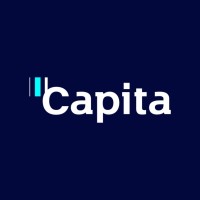
Capita
Capita is an outsourcer, helping clients across the public and private sectors run complex business processes more efficiently, creating better consumer experiences. Operating across eight countries, Capita’s 34,000 colleagues support primarily UK and European clients with people-based services underpinned by market-leading technology. We’re a vital support service for our clients, enabling the everyday interactions that we expect to run seamlessly, to run seamlessly. A publicly listed business with adjusted revenue of £2.4bn, Capita’s areas of focus are Central Government, Local Public Service, Defence, Learning, Fire & Security, Contact Centres and Pensions Solutions. We’re embracing change to respond to the ever-changing needs of society, creating better outcomes for all our stakeholders.






